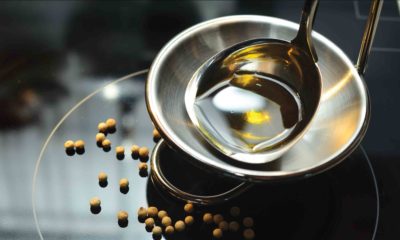[Exclusive] Arjan Roskam: An Audience With the King
Arjan Roskam, the legendary Amsterdam-based CEO of Green House Brands, gets candid. He talks about his dissolution with Canopy Growth, Donald Trump, Thailand, Berner, Damian Marley and, oh yeah, magical new genetics.
In a world of pot pantheons, one must be exceptional to be crowned “The King of Cannabis.” Arjan Roskam, founder of the Green House Brands empire holds this moniker, thanks to a heady mix of being a passionate proponent for the plant and his tenacity for growing phenomenal phenos that rise well above the norm.
In an exclusive, wide-ranging conversation that covers everything from world leaders to exciting new cultivars, I catch up with the busy Roskam, who’s looking fit and rested from his home in Spain.
Roskam leads myriad cannabis ventures that have flourished for more than three decades and the magnitude of this magnate’s influence and connections isn’t to be underestimated.

A natural entrepreneur, his kingdom includes Green House Seed Company (GHSC), Green House Coffeeshops, Green House Feeding, Green House Kitchen, GH Medical and the revolutionary Strain Hunters documentary series. He held the Netherland’s first federal grow license for pharmacies for the Stichting Institute of Medical Marijuana. And his quest for the planet’s rarest genetics has enabled scientific research into rare landrace strains—potentially unlocking untold medical advancements. He’s an ardent advocate for legalization and works with governments around the world to achieve that goal.
Born in Holland and raised in Zambia, Africa, Roskam’s journey to reefer royalty began when he was 17 while
backpacking through northern Thailand. There, a medicine man treating heroin addicts with cannabis gave him a handful of seeds and told him, “Keep those seeds. In the future, these seeds will overthrow governments.”
Young Roskam had no idea how prophetic those words would come to be.

In 1992, together with his wife Rose, he opened his first coffee shop, Green House Pijp, also known as The Green House, on The Tolstraat in Amsterdam. Fittingly, the area is known as the city’s Diamond District. Rose, an interior designer, created an airy, artistic space that was deliberately different from the style and vibe of Amsterdam’s existing coffee shops. Today, Green House Pijp continues to be a regular stop for A-list celebrities.
I ask Roskam about the now legendary event that changed everything: the day in January 1993 that High Times, the groundbreaking counter-culture journal of its day, went to Roskam’s coffee shop and asked him to take part in a cannabis competition they were sponsoring.
“Why not?” Roskam recalls saying. “The owners told me they’d come with maybe 100-200 people in November during the Thanksgiving holiday, to celebrate the first cannabis competition. We had totally forgotten about it when, suddenly, November arrived and 500 people appeared at my front door.” Not just customers, but international media, too.
That first year, Roskam won multiple awards, including the top prize in the coffee shop category. Naturally, people began asking for seeds.
In 1995, Roskam launched Green House Seed Company and, together with his team of master cultivators, has continued to produce cultivars with exceptional cannabinoid levels and unique terpene profiles. To date, GHSC has won dozens of worldwide accolades—a testament to the legendary genetics Roskam and his team have amassed in almost four decades.
These accomplishments have made GHSC the crown jewel of cannabis genetics, home to rare and popular varietals including Himalayan Gold and White Widow, the most popular cultivar of the 1990s. By happenstance, White Widow was my favorite strain as a young adult living in London during that decade. I loved its hazy, euphoric buzz that helped me tap into my creative flow when I was at art school.
Super Lemon Haze is, arguably, Roskan’s most celebrated—and what he credits as being “probably the most famous strain ever.” He tells me that he’s a Sativa guy and that his favorite cultivar is Hawaiian Snow—a Hawaiian Sativa x Laos cross with an uplifting high.

Our conversation then turns to the hot topic of the last couple of years.
In December 2020, the Dutch government introduced a strict lockdown throughout the entire country following a rapid rise in COVID cases. I ask Roskam about how it affected his businesses and he recalls the events that transpired.
“The prime minister went live on television at 4pm and two hours later, the whole country was shut down,” he says. “Across the whole of Holland, hundreds of people were lining up outside coffee shops and street dealers were handing out pamphlets with prices of cocaine, ecstasy and God knows what to everybody waiting in the line. This was of course, very, very visible to everybody. The Justice Minister panicked and called all the mayors the next day to pull it back. We were told, ‘You’re essential, now reopen immediately.’ So, we reopened for takeaway-only and that went on for a while and then we instituted the one-and-a-half-meters distance policy. We had screens in our shop and all that kind of stuff.”
For Roskam, this period presented an opportunity to really utilize the time and reset his goals—both at home and further afield.
Initially, he took the opportunity to remodel all five of his coffee shops for the first time in 27 years. Roksam explains that his style of coffee shop was still from an era when hash bars had to be at the back of the store “because it wasn’t allowed to be visible from the street under law.” Fortunately, his team included people that were handy with tools, including a plasterer, a carpenter and a plumber. “We had everything in-house,” he says.
Then, he reframed GHSC, which Roksam claims was needed because he’d been working in the Congo, Canada and was busy with other projects for the past decade. Together with Dust Lion, the head grower and breeder for GHSC, he started making new strains by crossing Old World with New World genetics. My pupils almost dilate with heady pleasure as he tells me details of the 20 to 25 new varietals in the pipeline.
Roskam then surprises me by revealing that in March 2022, Green House ended its partnership with Canopy Growth Corporation—Canada’s largest licensed producer of cannabis with globe-spanning operations—that had been in place since 2017. The fact that he quietly did this speaks volumes.

The split from Canopy is seismic news, potentially signaling more downturns for the dominant multiple state operators (MSOs) running in Canada and in the US. Overproduction is choking demand and sending prices, stocks and confidence ever downward. MSOs have been gobbling up the majority market share in newly legal markets including Connecticut, New York and New Jersey, which is proving to be detrimental to smaller, social equity license holders.
Roskam says he decided that it was time to “reset some programs that were running and that we also wanted to be out of the deal because we don’t agree with their business model,” noting, however, that it was “a happy divorce.”
“We came out of this COVID period doing new things, basically with a new wind,” he tells me with a smile and a purposeful tone.
Roskam’s commitment to creating cannabis fit for a king extends beyond cultivation. He has spearheaded advocacy work that’s led to unprecedented changes to draconian laws. He advises many governments around the world—including Colombia, Macedonia and, most recently, Thailand—on how to best move forward with cannabis legalization.
Until recently, Thailand had some of the most stringent anti-drug laws in the world, but in June 2022 it became the first country in Southeast Asia to decriminalize cannabis for medical and other purposes. The Thai government recently gave away one million cannabis plants to citizens so registered households can cultivate up to six plants to sell. Recreational use, however, remains illegal, but the government also aims to release around 4,000 cannabis prisoners.

I’ve spent a lot of time in Thailand and we chat freely about our mutual love for the beautiful country—Roskam tells me he attended the very first Full Moon Party more than a quarter century ago in Ko Pha-ngan. When I bring up Thailand’s recent 180-degree turn from lock-up to liberation, Roskam became clearly animated. He pulled out his iPhone and scrolled through a shocking number of messages that he claimed to be between him and Thai government officials.
“I can’t say too much, he tells me, clearly pleased with the role he played in shifting policy so dramatically, “but what I can say is that we’re one of the forces behind this. My team went to Thailand three times and we advised the Thai government on how to take care of this.”
With his global perspective and place in helping to change laws, I ask about his perception of the US and the country’s drawn-out move toward federal legalization. What he said next made me nearly fall off my chair.
“For me, it was a total surprise that Donald Trump didn’t pull the cards eight weeks before the election, because we were lobbying like crazy,” he says casually. “We told him to pull that card because he’d get re-elected, but he didn’t. Through his famous daughter [Ivanka Trump] and son-in-law [Jared Kushner], we had some people there. But I don’t know what went wrong.”
Is the self-proclaimed King of Cannabis saying that legalizing weed could have helped Trump win the 2020 election? Roskam came across as resolute as he has been on everything. But it stopped me in my tracks. Would legalizing cannabis have moved the needle enough to get him reelected? I understand if you need a minute to process. I’ll wait…
After taking a quiet moment to absorb the steady flow of breaking news Roskam is casually dropping, I start to wonder what’s left for him to do, and in a broader context, what’s the lasting legacy of Green House.
He tells me that the company’s impact is much more than great genetics.
“I started making cannabis movies in 2006,” he says. “I’ve traveled my whole life—I grew up in Africa and have been everywhere and I thought, ‘You know what, let’s show the world what’s really going on, with 200 million poor people around the equator, depending on marijuana’. In Africa, kids can’t go to school because they have to guard the cattle, because if they don’t, the cattle will eat the vegetables and the whole family will starve. I thought it was a very important thing to show. At the same time, we were going into countries to show how really ridiculous the system was. One example is Colombia where it’s now legal. After we left, the Colombian president told the BBC: ‘I’m not going to put people in prison anymore for an ounce of weed—it doesn’t make sense anymore.’ Exactly.”
At this point, Roskam’s teenage son—who has just returned from boarding school—comes into the room. Roskam excuses himself from our conversation while he focuses his attention on his son and the two have a brief exchange in their native tongue. Just after his son leaves the room, Roskam tells me about his children’s plan to take over the family business one day—his eldest daughter is currently Green House Brand’s creative director—adding some healthy sibling rivalry.
We get back onto the topic of activism and Roskam’s role in changing the perception of cannabis.

“Being an activist and creating awareness for cannabis, together with great genetics, of course, was our main focus all the time,” Roskam says. “Giving seminars, doing interviews with CNN—it’s actually the package—what we try to show people is what makes us different. Also, our dispensaries are quite different from most dispensaries. It’s more of a smoke experience. We like people to sit down and enjoy themselves. The Dutch coffee shop system is the only system in the world where you’d see a Chinese guy, a Black guy, a white guy and an Eskimo all at one table, smoking a joint and sharing their social life. This, of course, is a really good thing, you know, to bring all these people together. And that’s one of the few places in the world where this happens.”
For more than 15 years, Roskam had an idea brewing for a show that investigated cannabis on a global scale, enlightening viewers while removing those all-familiar, outdated stigmas associated with the plant. Launching in 2008, the show became a series of documentaries called Strain Hunters.
Together with his close friend and GHSC master cultivator, Franco Loja, Roskam would spend the better part of two decades scouring the faraway mountains and jungles of the world, searching for unique and prized landrace genetics. More often than not, they were successful.

Landrace cannabis is distinguished by the fact that it’s unique to its geographical origin and adapts to the land and environment in which it develops. Landraces can be utilized for breeding, cross-pollination and the creation of new genotypes.
For the uninitiated, Strain Hunters remains must-see TV. There are some genuinely sketchy and scary times that show the astonishing lengths Roskam, Loja and their intrepid team have gone to secure those sought-after genetics.
I ask about what his most prized landrace is, and he says, without a moment of hesitation, “Punto Rojo.” Then, he holds up his phone once again, scrolling for a moment before showing me an enormous Christmas tree-like cannabis plant. It’s nothing short of amazing.
“We’re planting 9,000 [cannabis] trees in Sudan and South Africa with our partner,” Raskam says. “Because this variety comes from Colombia, which is humid, this plant has outperformed any other plant in the rainy season. When you harvest there’s a lot of rain, so you need something that’s adaptable. And so yeah, I’d say for now that’s our strongest landrace and we’re crossing that with a lot of really nice plants. As a matter of fact, we’re coming out with one special one very soon—a Watermelon Zkittlez x Cloudwalker (Punto Rojo x Mendobreath)—it’s going to be awesome.”
I was curious if Roskam had ever truly feared for his life on the expeditions over the years.
“Look, it’s very dangerous,” he says seriously. “There are some things I can’t speak about because they’re still extremely dangerous. There are some episodes [of Strain Hunters] that haven’t been broadcast because things went out of control. Anything can go wrong. I always warn my team that guns and drunken soldiers are dangerous, but the most dangerous thing is a very little animal you cannot see. It could be bacteria, it could be Ebola, could be Dengue, could be Malaria.”

In 2016, the Strain Hunters crew was filming in the Democratic Republic of Congo, searching for new genetics while also learning how CBD can be used to treat cerebral malaria, a preventable condition that kills more than 405,000 people a year when the unthinkable occurred.
Tragically, Loja contracted malaria in the Congo and succumbed to the aggressive disease on January 2, 2017. His passing was a devastating shock to Roskam and the Green House family and the tremors were felt by the cannabis community around the world. In March 2017, VICE on HBO featured Kings of Cannabis: Congo, which was Franco Loja’s last appearance before he died.
“How dangerous is it?” Roskam continued. “Well, Franco died. There are just a lot of things that can go wrong. It’s a mission. It’s always scary. But it’s my goal to create awareness on this planet and I put my life up for it. Franco put his life up for it, and I’ll put my life for it. My kids sometimes say to me, ‘Shut up, Papa,’ but they understand. I say, ‘Listen, maybe I don’t come back (from one of the dangerous expeditions). I wrote a letter to all of my children and they’ll get it if and when I don’t come back. It is what it is, but we—all of us—are fighting for something important. And someone has to do this.”

To honor Loja’s legacy, a tribute appears on the Green House Seed Co. website: “Franco’s high-risk, fast-paced, full-gas career was only just taking off. He had invested all his time, money and passion into building up a future for himself and his children, while helping people in places such as the Democratic Republic of the Congo. His children were everything to him, and he was an amazing father.”
I wanted to know what Roskam thought Loja’s enduring legacy should be.
“Passion,” he tells me, softly. “Passion.”
So, what’s next? Roskam says he’s working on more adventures and what he reveals next is another gem of information—an as-yet-unnamed venture between GHSC and Cookies.
“The most spectacular adventure is the announcement that, with my friend Berner, we’re going to take care of Cookies seeds worldwide,” he says, smiling from ear to ear, referencing the red-hot brand owned by the Bay Area entrepreneur, rapper and newly minted billionaire, Berner. “We’re going to make that in our facilities in the US, Colombia, Denmark—everywhere.”
Oh, but there’s more.

Roksam, Dust Lion and Joa Helms, CEO of Green House Coffeeshops, recently traveled to Jamaica to create a new brand with Damian Marley, youngest son of the legendary Rastafarian singer Bob Marley, called Hurb. Talk about the knights of the roundtable.
Roskam says this important new partnership “will include dispensaries and some very special strains.” The end goal, he says, is to create a breeding project that incorporates strains from Jamaica as well as Cookies’ genetics. Mind officially blown.
“Maybe this is the time for a new era in cannabis,” Arjan Roskam says, with a telling, mischievous smile.
The King of Cannabis is still clearly setting the agenda for the rest to follow. Exactly what leaders do.
This story was originally published in the print edition of Cannabis Now.



















